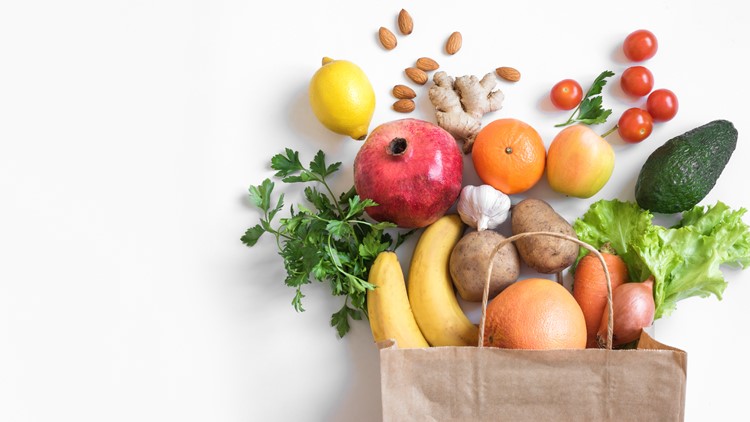This month, VERIFY investigated several popular food-related legends. Many of these are health warnings or advice adults commonly share with children, meant to encourage kids to eat certain foods or avoid certain behaviors.
We asked our audience which tidbits of food folklore they’ve heard over the years and would like to see fact-checked. Many people sent in their suggestions over social media, text message and email, and VERIFY picked five to fact-check.
All five of the food legends VERIFY researched were either misleading or outright false, although many of them stem from some kernel of truth.
QUESTION #1
Are all of the nutrients in potatoes and apples found in the skins?
THE ANSWER
No, not all of the nutrients in potatoes and apples are found in the skins. Even so, there are a lot of nutrients in the peel.
THE STORY
VERIFY found that the flesh of potatoes and apples has just as much — if not more — nutrients than the skins. About half of a potato’s fiber is found in the skin, and a good chunk of an apple’s fiber is in the peel as well. But the flesh has the majority of most other nutrients, and still has a significant amount of the fiber.
You can read more about the specific nutrient levels in flesh versus the skin here: No, the nutrients in potatoes and apples aren’t all in the skin.
QUESTION #2
Does gum really take seven years to digest?
THE ANSWER
No, gum does not take seven years to digest.
THE STORY
Your body can’t digest a wad of gum, meaning your gastrointestinal system can’t break it down. But it can pass the gum through your stool mostly intact after two to five days. Even though your body doesn’t digest gum, this process takes the same amount of time as food, so you won’t have to worry about gum taking up valuable stomach real estate for the next seven years.
You can read more about how your digestive system handles gum here: No, gum won’t take seven years to digest
QUESTION #3
Will eating carrots improve your vision?
THE ANSWER
No, eating carrots will not improve your vision, as long as you don’t have a vitamin A deficiency. Although carrots do have nutrients that promote eye health, the belief that carrots can actually improve your vision stems from British WWII propaganda.
THE STORY
Carrots contain beta-carotene, which your body converts into vitamin A. Vitamin A is necessary to maintain good eye health, but most Americans eat a diet with sufficient vitamin A. Eating a lot of carrots won’t make your eyes any better if you already have sufficient amounts of vitamin A. The myth that carrots will give you super eyesight comes from British WWII propaganda, which claimed that the country’s pilots were able to see German planes at night because of their carrot-rich diets. In reality, the United Kingdom was using a radar system it didn’t want Germany to know about.
Read more about how vitamin A impacts your eyesight here: No, carrots will not improve your vision — but they are good for eye health
QUESTION #4
Can placing raw onions in the house or on your skin cure a cold or flu?
THE ANSWER
No, placing raw onions in a room or on your skin will not cure a cold or flu.
THE STORY
Legend says that onions can absorb bacteria and viruses from the air or even your body, and can then kill those germs once they’re trapped within the onion. Onions don’t actually have any special physical properties to absorb and kill germs, and it’s impossible for something to pull a bacterial or viral illness out of your body. Even if onions can’t physically kill germs, they can still help you fight disease another way — they contain nutrients that can bolster your immune system when you eat them.
Read more about the origins of the flu-killing onion myth here: No, putting raw onions in your room or on your feet won’t cure your cold
QUESTION #5
Is it dangerous to swim within 30 minutes of eating?
THE ANSWER
No, it’s not dangerous to swim within 30 minutes of eating.
THE STORY
This myth originates from old handbooks for Boy Scouts and Girl Scouts, which claimed that kids would get severe cramps if they swam immediately after eating. According to the handbooks, your body would try to dedicate blood to both your muscles for swimming and your stomach for digestion, and when one or both didn’t get enough blood, you’d cramp up and drown. In reality, your body has more than enough blood to supply both your digesting stomach and your active muscles at once, and so it’s unlikely your post-meal swim will cause any cramps at all.
Read more about the evidence against this legend here: No, it’s not dangerous to swim 30 minutes after eating
Have any more questions you want to see answered, about food or anything else? Submit them through text message at 202-410-8808, social media @verifythis, via email at questions@verifythis.com or our question form below.



